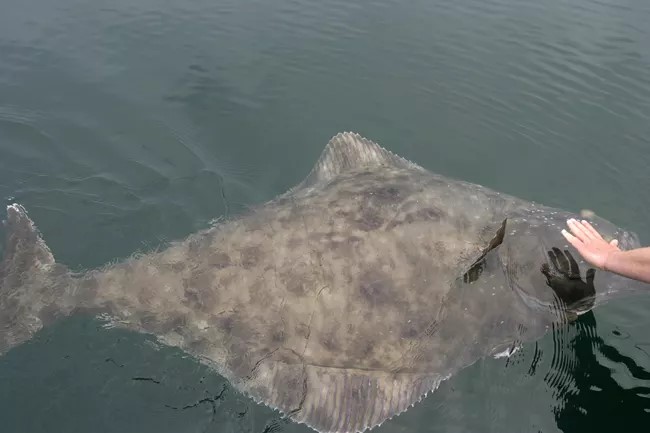
A study by NCCOS-funded researchers predicts that under a business-as-usual carbon dioxide emissions scenario, suitable habitat for Pacific halibut will disappear by the year 2100 off the coasts of Oregon and Washington and shrink by 50 percent off Alaska.
The U.S. Pacific halibut fishery is one of the most important commercial groundfish fisheries in the North Pacific Ocean. In 2021, commercial landings of Pacific halibut (Hippoglossus stenolepis) were valued at $119.7 million, with 96 percent landed off Alaska, and the remainder off Washington (approximately 3 percent) and Oregon (approximately 1 percent).
Using fisheries-independent survey and oceanographic data from 1998 to 2020 along with a regional ocean model, the researchers examined the potential future impacts of deoxygenation and increasing temperatures on suitable habitat for Pacific Halibut. They found that by the end of the 21st century, the highest impacts are projected to be at depths near 100 m (328 feet) off Alaska and British Columbia, which is prime juvenile habitat. This may result in future impacts to the Pacific halibut life cycle and push the species farther north.
The study was part of a project under the NCCOS Coastal Hypoxia Research Program. It is applying coastal ocean models to determine the vulnerability of important species to changing temperature and oxygen in the California Current.
